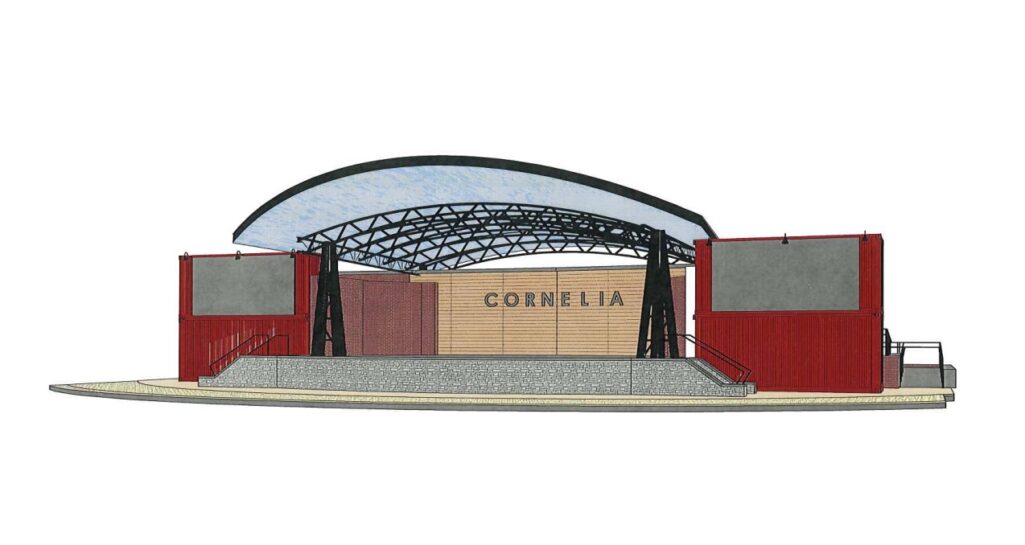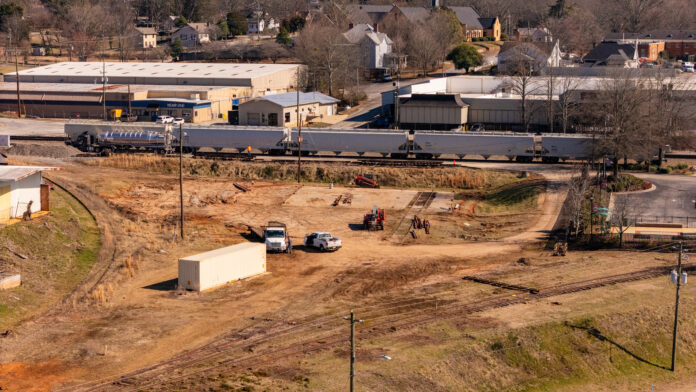
A new amphitheater soon-to-be under construction in Cornelia is set to host its first event in May as part of the city’s annual music festival. But local community activist Audrey Davenport – who said she’s speaking on behalf of nearby residents – maintains city officials failed to involve local property owners in selection of the amphitheater’s location, or consider its potential impact, fueling fears of what she describes as impending gentrification.
Gentrification, a process where affluent individuals move into lower-income neighborhoods, often results in rising property values and the displacement of longtime (specifically low-income) residents. Davenport is particularly fearful the project signals the beginning of this process in downtown Cornelia.
Amphitheater, park project
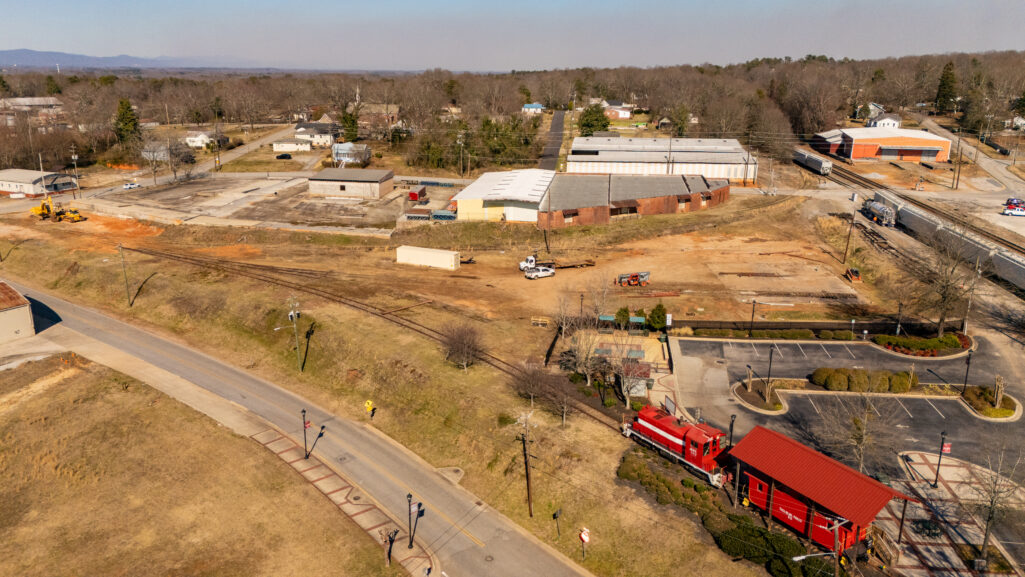
The amphitheater, part of a larger city park project off Grant Place, will eventually have a (outdoor) seating capacity of 5,000 and is funded in part by a $1 million grant from the Appalachian Regional Commission (ARC).
Phase I of the project, which includes the park, is estimated at $2.1 million – paid from the grant, SPLOST funding and the city’s general fund. That phase is expected to be completed by December 2025. Phase II is slated for completion in 2026 for $1.5 million from the city’s general fund.
While the amphitheater, in its entirety, won’t be finished until early-2027, the site will be graded by Higgins Construction in time for the upcoming Cornelia Music Festival, headlined by musician Marty Stuart on May 17, according to Cornelia City Manager Dee Anderson.
“The stage area will not be constructed until 2026, as this will be phase II of the project,” Anderson said “ … Currently people will have to use the existing parking lots downtown. We hope to acquire property near the site in the future in order to add more parking for downtown.”
Gentrification?
Despite the amphitheater’s potential as a venue for entertainment and economic growth in Cornelia, Davenport believes the project could adversely impact surrounding residents, most of whom are people of color.
Davenport said the city failed to consider the impact of increased noise levels and traffic in the area, claiming the location was chosen without sufficient input from the affected community.
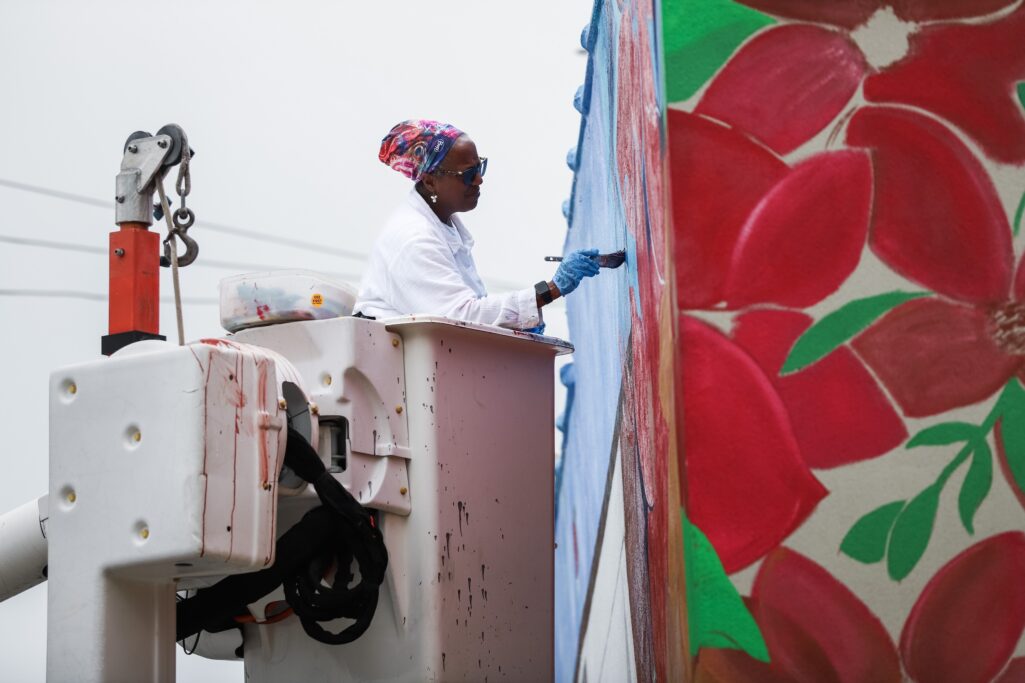
“What we don’t have is enough economic or political standing to be able to push against this,” said Davenport, who called city officials’ decision-making process “implicit bias.”
She went on to say the amphitheater, as well as continued development in that area, could ultimately displace longtime residents in marginalized neighborhoods if gentrification takes hold.
“(The amphitheater) is going to impact us,” Davenport said. “…they don’t ever consider us when they make these decisions. We can’t stop it, but (city officials) should be able to include us to the point where we can feel like we are a part of it.”
Officials respond
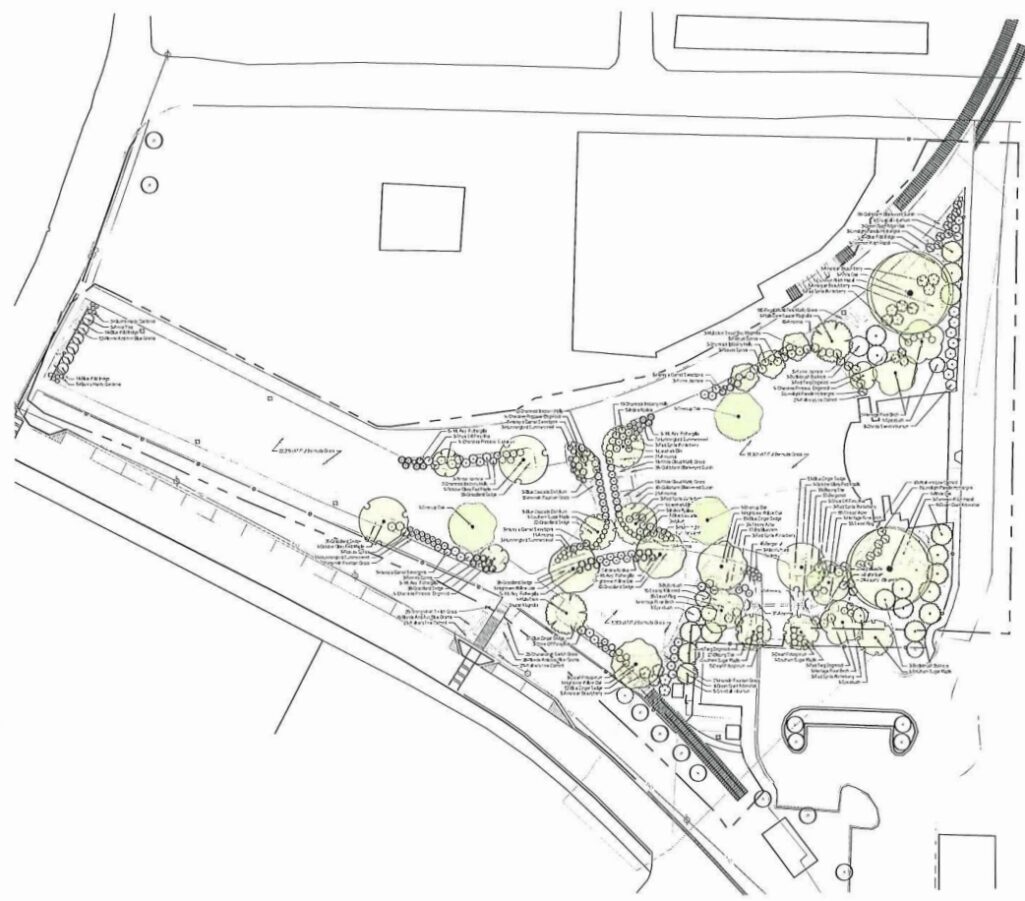
Anderson said the site was selected because of its central location in the downtown area.
“I feel that this project will be the catalyst to really put Cornelia on the map,” Anderson said. “I hope to be able to attract large shows that will bring people to Cornelia. Over the past eight years, the Cornelia Music Festival has shown that people love a good concert, and they always ask why we only do one show a year.”
He added: “Having a permanent venue will enable us to bring more artists to town. I do want to stress that we are building more than just an amphitheater, the primary use of this property will be a city park. It will also enable us to move our festivals and events instead of having to use existing streets and parking lots.”
Cornelia Commissioner Tony Cook, a Black man who represents Ward 4 where the amphitheater will be built, agreed with Anderson and stated his belief the project “is not so much for the community” – but “the city and surrounding areas.”
“I haven’t heard anything negative (from my constituents),” Cook said. “I’m not going to comment on something I haven’t heard anything about. I’m not going to get into that with (Davenport) … It will be great for entertainment for the city of Cornelia and surrounding areas.”
Cornelia Mayor John Borrow said a public planning meeting between community members, city officials and the University of Georgia’s Carl Vinson Institute of Government had been held in April of last year before decisions to build the amphitheater were made.
Borrow said there was no opposition during that meeting, attended by around 30 people, and that he believes both the amphitheater and the park will enhance that part of the city.
“We’ve taken care to listen to all input from stakeholders, residents and interested parties,” Borrow said. “I feel that developing this under-utilized property brings value to everybody – to all neighborhoods and businesses.”
